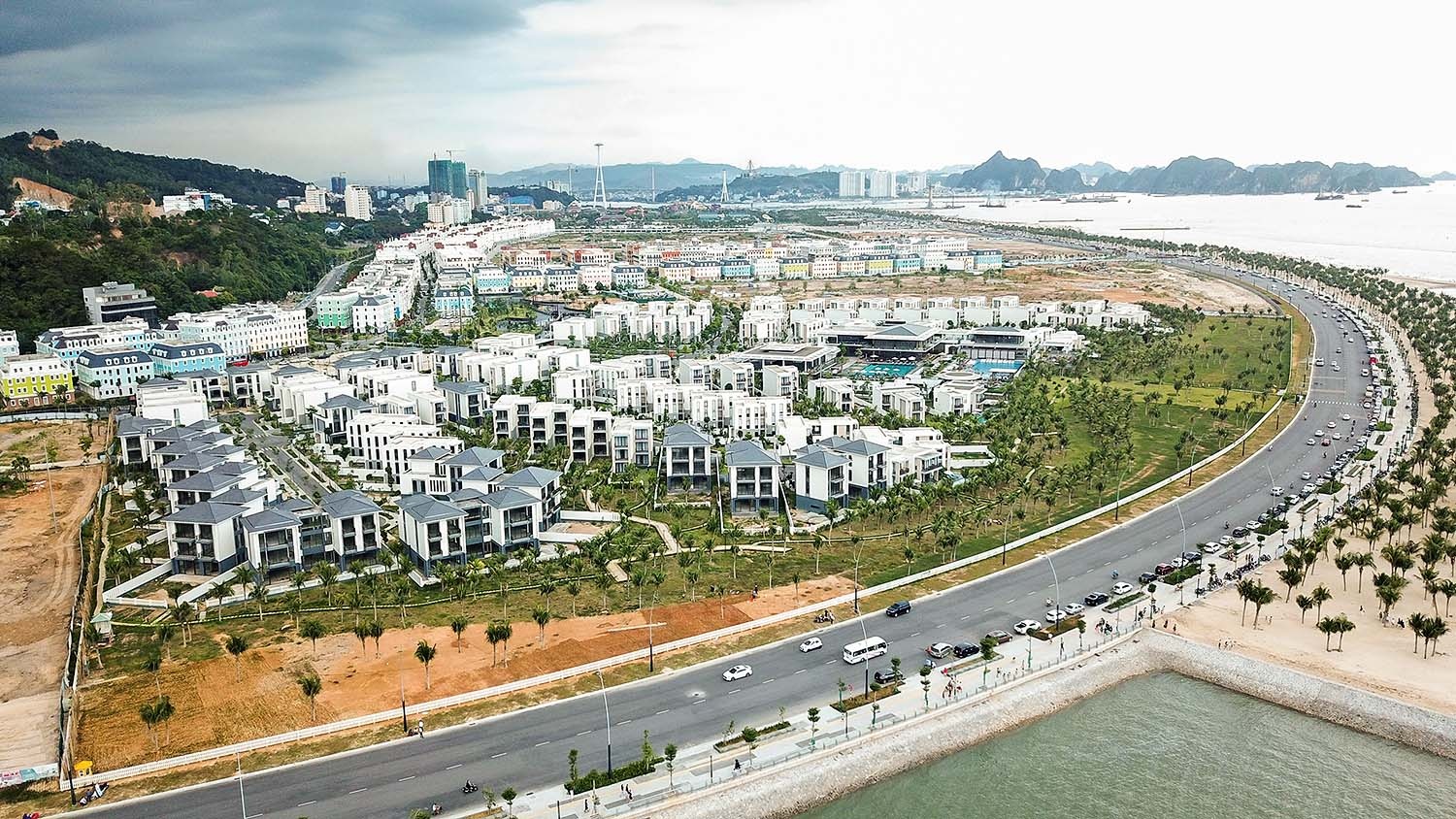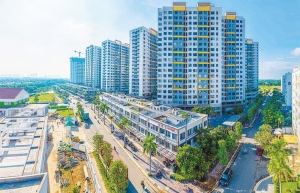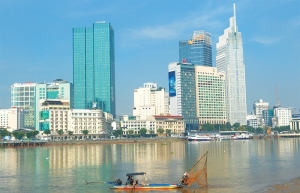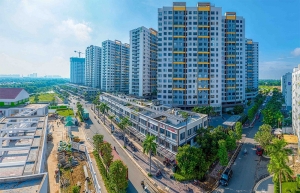Resort real estate remains in hibernation
 |
| Due to legal bottlenecks, the resort real estate market is more onerous than other sectors |
A recent study by DKRA Vietnam, a supplier of real estate services, revealed a dramatic fall in resort real estate supply and demand. Due to market difficulties and political and economic unpredictability, investors continually postpone their sales plans.
In November, the supply of resort villas decreased drastically compared to the previous month and reached its lowest level since the beginning of the year, with 170 units in six projects being released for sale, a decrease of 70 per cent compared to last year.
The North and South remain the dominant areas in terms of the country's supply and consumption, accounting for 91 per cent of the total supply and 95 per cent of total consumption. The supply of resort villas in the North is 83 projects, while the supply in the South is 71 projects.
The principal selling price has not changed much from previous months, but investors gave discounts of up to 30 to 40 per cent to encourage market demand in light of a challenging environment. The principal selling price varies from $224,000 to $1.05 million per unit in the North; $258,000 to $1.6 million per unit in the Central region; and $572,000 to $3.1 million per unit in the South.
According to the Vietnam Association of Realtors, the supply of resort real estate is still much lower than before 2019. Supply and transaction volume will likely decline during the second and third quarters of 2022 when real estate finance becomes more restrictive.
The tourist sector and the resort real estate market have a symbiotic connection; tourism growth stimulates the growth of resort real estate and vice versa. In 2020, the epidemic had a detrimental influence on local tourism, while the number of overseas visitors declined dramatically—by less than 20 per cent compared to 2019.
Da Nang, Phu Quoc, Quang Nam, Quang Ninh, Phu Yen, Khanh Hoa, Binh Thuan, and Thanh Hoa reported many resort units for sale. However, this number was much lower than during the 2015–2019 zenith of the resort real estate market.
2023 remains challenging
Vo Hong Thang, deputy director of DKRA Vietnam's Research and Development Department, told VIR that Chinese tourists make up a significant share of overseas visitors to Vietnam.
In terms of luring foreign tourists, 2019 was Vietnam's golden era with more than 18 million visitors, with Chinese tourists accounting for more than 32 per cent. China's Zero Covid policy has significantly influenced the number of foreign travellers visiting Vietnam in recent years.
China has recently taken steps to loosen its Zero Covid policy. After a lengthy hibernation, this is a positive indication for Vietnam's tourist sector, helping to spur the revival of the resort real estate market. However, the market is now rather uncertain since macroeconomic issues domestically and internationally, as well as the real estate business environment, remain unsettled.
Due to legal backlogs, the resort real estate market is more challenging than other markets. In addition, the backlogs of efficiency in exploitation and operation and, more crucially, the breakdown of consumer trust following the payment of profit promises damaged investor confidence.
According to Thang, China's decision to modify the Zero Covid policy augurs a future tourism recovery, but it is insufficient to favourably impact the resort real estate market. Short-term, at least until 2023, it is expected that this market will continue to struggle with medium-to-low liquidity and will not see short-term price surges.
"Resort real estate is a game for wealthy investors with a plan for sustainable growth. Long-term, the genuine worth will increase. I believe the market has undergone a significant price adjustment in line with each locale's potential and operational capacity," Thang said.
According to Nguyen Ngoc Linh, proprietary director of DNSE Securities, the loosening of epidemic control measures instantly spurred a rally in several US-listed Chinese company shares. The Yuan also registered a rise against the USD.
China's decision to relax its Zero Covid policy will favour tourist stocks in the near future. However, resort real estate equities are unlikely to accelerate in 2023 as they confront several obstacles.
 | Real estate hoping to build on positive sentiment The credit growth cap and setting up a working group to solve problems for businesses and localities in the implementation of real estate projects are optimistic signals for the real estate market, which still expects a tough winter ahead. |
 | Wheels in motion to resolve impediments in real estate After a period of sluggishness over the last couple of years, the real estate market has not yet rebounded as anticipated and has even shown symptoms of a standstill due to legal concerns. |
 | Several consequences to be felt in real estate in 2023 Although there have been supportive signs for the market, real estate in 2023 is expected to be still affected by the declining confidence of homebuyers, obstacles in the legal framework, and scarce capital sources. |
What the stars mean:
★ Poor ★ ★ Promising ★★★ Good ★★★★ Very good ★★★★★ Exceptional
Related Contents
Latest News
More News
- Construction firms poised for growth on public investment and capital market support (February 11, 2026 | 11:38)
- Mitsubishi acquires Thuan An 1 residential development from PDR (February 09, 2026 | 08:00)
- Frasers Property and GELEX Infrastructure propose new joint venture (February 07, 2026 | 15:00)
- Sun Group led consortium selected as investor for new urban area (February 06, 2026 | 15:20)
- Vietnam breaks into Top 10 countries and regions for LEED outside the US (February 05, 2026 | 17:56)
- Fairmont opens first Vietnam property in Hanoi (February 04, 2026 | 16:09)
- Real estate investment trusts pivotal for long-term success (February 02, 2026 | 11:09)
- Dong Nai experiences shifting expectations and new industrial cycle (January 28, 2026 | 09:00)
- An Phat 5 Industrial Park targets ESG-driven investors in Hai Phong (January 26, 2026 | 08:30)
- Decree opens incentives for green urban development (January 24, 2026 | 11:18)

 Tag:
Tag:





















 Mobile Version
Mobile Version